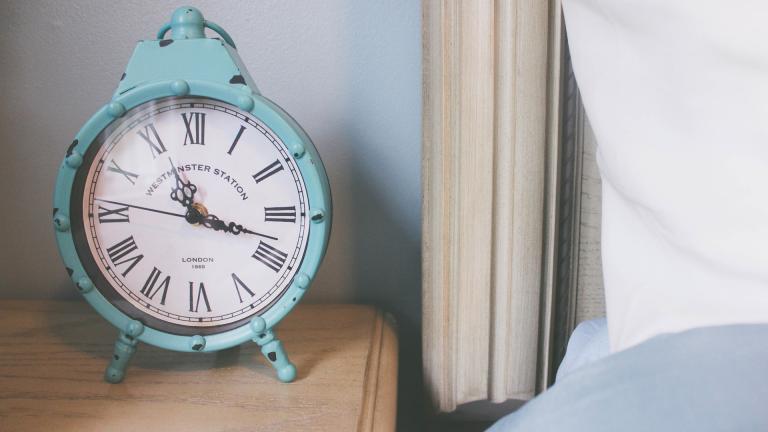Have you changed all of your clocks yet? What if you didn’t have to do that pesky chore twice a year?
Several states are pushing to make the twice-yearly time change a thing of the past. In Illinois, the Senate is scheduled to take up a bill next week to make daylight saving time permanent. And it’s not just politicians who want to beat the clock. Dr. Phyllis Zee, a neurologist and director of the Center for Circadian and Sleep Medicine at Northwestern Medicine, is sounding the alarm on the negative health and productivity outcomes of the seasonal time shift.
“Sleep is essential for our metabolism and brain function,” said Zee. “Protecting our sleep cycles is important and the twice-yearly time change disrupts it. Data shows there are more car accidents and heart attacks during the week after daylight saving time arrives in spring. There’s also data showing that there are negative health effects with falling back in the fall.”
Below, more from our Q&A with Zee.
What would you like to see happen with daylight saving time?
Everyone agrees switching the clocks twice a year is not a good idea. It did not save the energy during WWI that it was originally created for and has no use now. So the question becomes, do we follow standard or daylight time? I’m in favor of making standard time permanent. It will allow our internal clock to be better synchronized with the sun. I realize people like daylight saving time because we get more daylight when we get home from work, but it’s going against the natural rhythm of light. People end up staying up too late and getting too little sleep. There are some advantages to daylight saving, but I think the advantages of standard time outweigh them.
Any advice for people having trouble sleeping when the clocks change?
Sleep and light is important. We need seven hours of sleep each night. To settle our brains and prepare for sleep I recommend dimming the lights two or three hours before bedtime, whether you’re watching TV, chatting with someone or reading, whatever you’re doing.
The “fall back” time change signals for many the beginning of seasonal affective disorder, SAD. Any strategies to combat that?
It’s important to get light. Sit by a window. People with SAD may need even more light, possibly requiring purchasing a special light box. Getting light during the day is very important. Newer buildings have better lighting, which is showed to improve mood and productivity.
We did a study that showed office workers who sit near a window reported that they felt better and that their self-rated health quality was better. They were also more active after work.
What about areas where there’s only a few hours of daylight in the winter?
There are definitely higher rates of suicide in those northern climates. It also makes it hard to go to sleep when it’s light until 3 a.m.
Do people sleep more in the winter?
Yes.
Is that a bad habit?
Not necessarily. It’s natural. If there’s less light, it makes sense that you’d sleep more. Certainly there are limits though. Of course I’d be concerned about someone who seems to never want to get out of bed.
Related stories:
Science Says: How Daylight Saving Time Affects Health
Study: Late Night Light Exposure Doesn’t Affect Circadian Rhythm
Sleeping with the TV on May Make You Gain Weight
Study: Night Owls Have Risk of Dying Sooner than Early Risers
Northwestern Professor Asks, ‘What Makes Our Internal Clocks Tick?’



